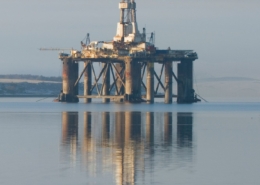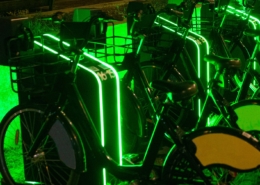The sheer opportunism and hypocrisy of the SNP on the EEC/EU – Stephen Bailey
Written by Stephen Bailey
The SNP are well known for their inherent opportunism and hypocrisy on several policy areas. They are no different regarding Scotland’s place in the EEC/EU.
To highlight this, let’s examine what the SNP actually said during the 1975 referendum on the UK’s accession to the then EEC (Ted Heath had forced the UK into the bloc in 1973 without consulting the public and after allowing MP’s very little time to examine the details of membership-he guillotined the bill taking the UK into the bloc, a procedure designed to get bills through Parliament as quickly as possible). ALL 11 SNP MP’s voted against the bill.
During the referendum campaign, various SNP luminaries made the following statements:
The then SNP President, Robert McIntyre, stated that Scots should vote for withdrawal from the EEC, not just on economic grounds, but because ‘all human communities must be able to make their own decisions about their future’ (The Scotsman, 29th May 1975).
Indeed, the SNP told voters that ‘sovereignty’ was the main issue of the campaign (The Scotsman, 22nd May 1975).
Donald Stewart, the SNP’s Parliamentary leader at the time, said the EEC ‘represents everything our party has fought against: centralization, undemocratic procedures, power politics and a fetish for abolishing cultural differences’ (The Scotsman, 2nd June 1975).
SNP leader William Wolfe warned that EEC membership would plunge Scotland into ‘a political dark age of remote control and undemocratic government’ (The Scotsman, 22nd May 1975).
Winnie Ewing, Member of Parliament for Moray and Nairn at the time, warned that a vote to stay in the Common Market would be tantamount to a ‘death warrant’ destroying Scotland’s ‘hopes of long term economic prosperity’ (The Scotsman, 9th May 1975).
Added to the above, the SNP declared in 1970 that ‘Scotland didn’t want to be dragged into the EEC [by England] against their will’ (a supremely ironic statement considering that ‘Scotland doesn’t want to be dragged out of the EU [by England] against her will’ was their cry 46 years later during the 2016 Referendum). In 1975, ALL 11 SNP MP’s voted against EEC membership.
In 1986, John Swinney, Mike Russell and Nicola Sturgeon all joined the SNP’s anti-EEC campaign.
In 2007, the SNP voted unanimously with the Conservative Party to force a referendum on the EU.
In 2012, the SNP claimed that they’d taken legal advice on Scotland gaining automatic entrance to the EU after independence from the UK.
In 2014, they were told unambiguously and emphatically in a letter from the EU Commissioner that leaving the UK would automatically mean Scotland leaving the EU and that re-entry to the bloc would take a very long time with no fast route back in. The SNP spent £20, 000 covering up the contents of that letter from the public.
In 2019, the SNP deliberately abstained in a Commons vote on an amendment to the Brexit bill introduced by left-wing Conservative MP Ken Clarke that would ensure the UK stayed in the EU’s Single Market. The bill failed by 6 votes, which suited the SNP as they wanted a ‘hardest’ possible Brexit as they thought that this would provide fruitful conditions to agitate for independence.
In 2021, the SNP illegally blocked a Freedom of Information request for them to release their findings on the prospects of Scotland’s membership of the EU in the event of independence, paid for by taxpayers.
If there had been a ‘yes’ vote in the 2014 independence referendum, Scotland would have automatically been out of the EU, as the UK is the ex-member nation (of the EU), so leaving that nation automatically removes any seceding part of that ex-member’s territory from its current membership of the bloc.
All of the above is very prescient when considering the 2016 EU referendum:
1. It highlights the importance of sovereignty to nation states.
2. No ‘remote control and undemocratic government’ by Brussels.
3. No ‘centralization [in Brussels]’.
4. No ‘power politics’.
5. The (then) EEC (today’s EU) is concerned with abolishing national identity (‘a fetish for abolishing cultural differences’).
6. Membership of the EEC would damage the UK’s economy (‘destroying Scotland’s hopes of economic long-term prosperity’).
ALL of which were primary considerations of forming a decision in the 2016 EU referendum.
The SNP is ignoring its long history of deep Euroscepticism. The SNP only became a Europhile party in 1988. Before 1988, the SNP was the most Eurosceptic party in the UK-it campaigned for withdrawal from the EEC in the 1975 referendum. At the time it called the Common Market a ‘dangerous experiment in gross over centralization’ and that was before Maastricht, the single currency and many other power-grabs made by the EU.
Many SNP supporters haven’t changed their minds since the pre-1988 period and still harbour strong Eurosceptic tendencies. If London is too far away to make decisions on what happens in Edinburgh or Inverness, it is illogical to like being ruled from Brussels.
The cherry on the cake is that the SNP of the 1970s knew even then that the idea Scotland should be independent of the UK Union in order to make ‘her own decisions’, only to lose that ability by going into the EEC (later to become the EU), so that the organs and institutions of the bloc can dictate Scottish policy to them, just doesn’t make sense. All the above SNP quotes from 1975 argue strongly that sovereign nation states must retain an unfettered ability to make their own decisions and decide their own fate and Scotland could never do that as an EU controlled vassal state.
The evidence is compelling-the only consistent thing down the ages about the SNP’s position on the EEC/EU is their inconsistency and lack of principle.
NB: The article does not represent the views of Scotland Matters.











